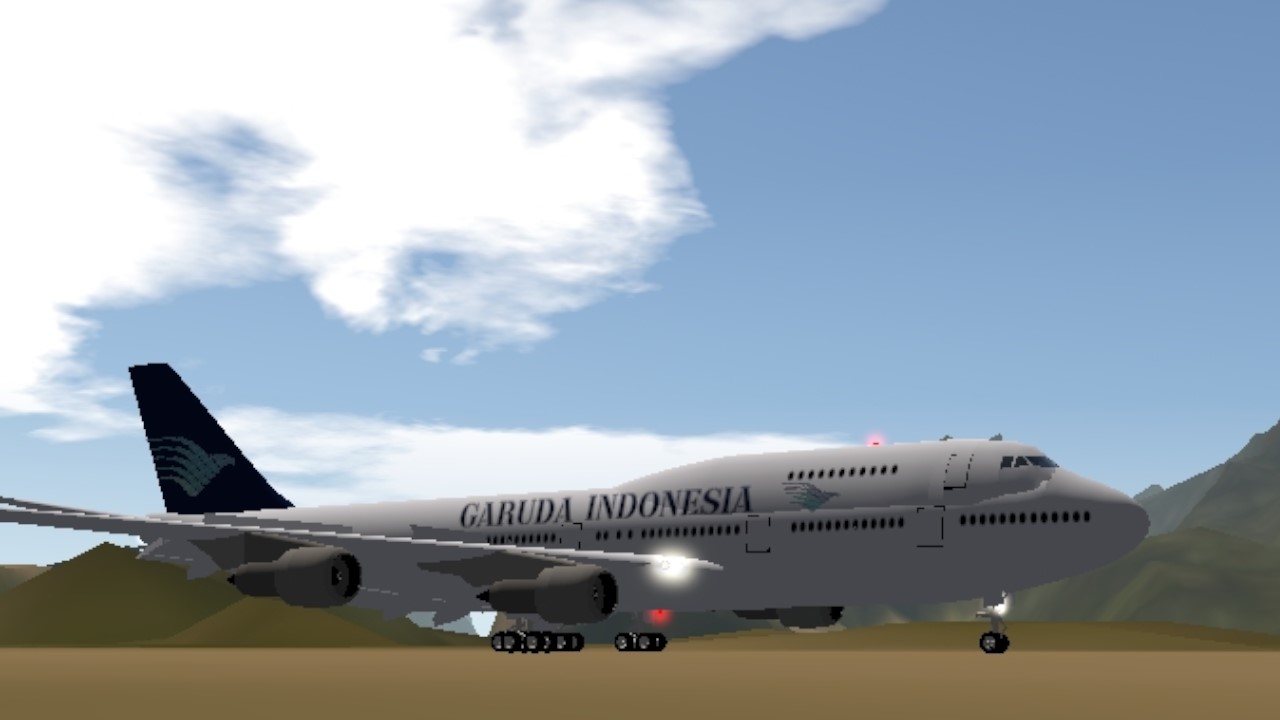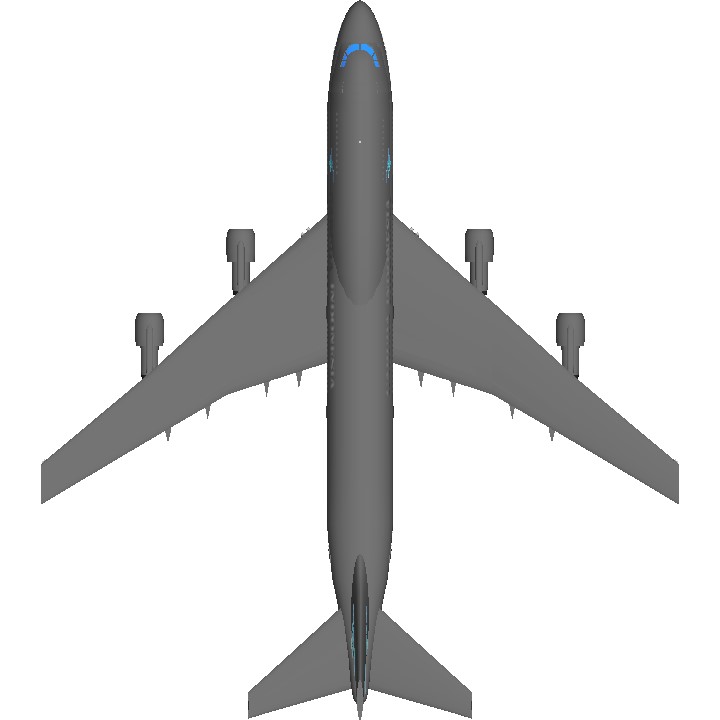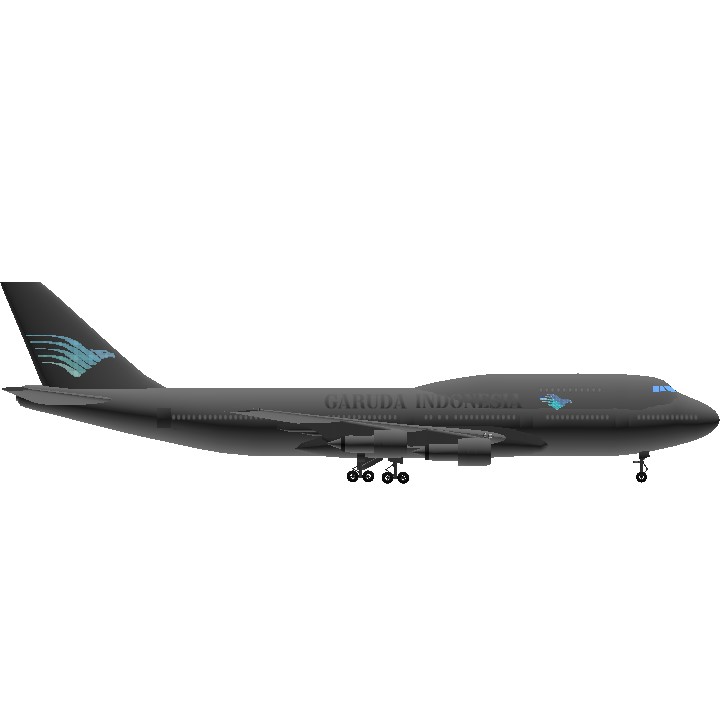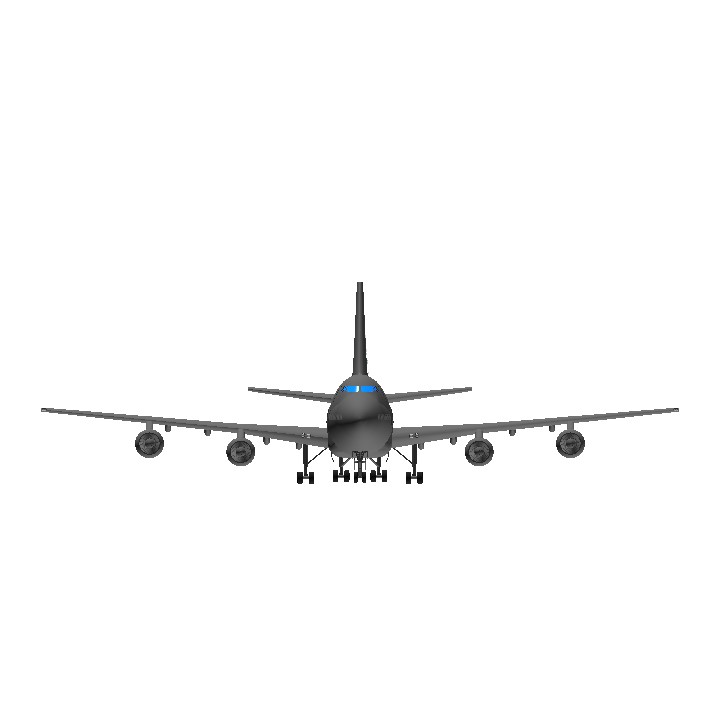Credits to GalacticaAsia for the 747-400 model. Credits to Sheran for the PW engines.
ABOUT GARUDA INDONESIA
Garuda Indonesia is the flag carrier of Indonesia, headquartered at Soekarno–Hatta International Airport. A successor of KLM Interinsulair Bedrijf, it is a member of SkyTeam and the second-largest airline of Indonesia after Lion Air, operating scheduled flights to a number of destinations across Asia, Europe, and Australia from its hubs, focus cities, as well as other cities for Hajj. It is the only Indonesian airline that flies to European airspace.
ABOUT THE BOEING 747-200 MODEL
While the 747-100 powered by Pratt & Whitney JT9D-3A engines offered enough payload and range for medium-haul operations, it was marginal for long-haul route sectors. The demand for longer range aircraft with increased payload quickly led to the improved -200, which featured more powerful engines, increased MTOW, and greater range than the -100. A few early -200s retained the three-window configuration of the -100 on the upper deck, but most were built with a ten-window configuration on each side.[157] The 747-200 was produced in passenger (-200B), freighter (-200F), convertible (-200C), and combi (-200M) versions.[158]
The 747-200B was the basic passenger version, with increased fuel capacity and more powerful engines; it entered service in February 1971.[70] In its first three years of production, the -200 was equipped with Pratt & Whitney JT9D-7 engines (initially the only engine available). Range with a full passenger load started at over 5,000 nmi (9,300 km; 5,800 mi) and increased to 6,000 nmi (11,000 km; 6,900 mi) with later engines. Most -200Bs had an internally stretched upper deck, allowing for up to 16 passenger seats. The freighter model, the 747-200F, had a hinged nose cargo door and could be fitted with an optional side cargo door, and had a capacity of 105 tons (95.3 tonnes) and an MTOW of up to 833,000 pounds (378 t). It entered service in 1972 with Lufthansa. The convertible version, the 747-200C, could be converted between a passenger and a freighter or used in mixed configurations, and featured removable seats and a nose cargo door. The -200C could also be outfitted with an optional side cargo door on the main deck.
The combi aircraft model, the 747-200M (originally designated 747-200BC), could carry freight in the rear section of the main deck via a side cargo door. A removable partition on the main deck separated the cargo area at the rear from the passengers at the front. The -200M could carry up to 238 passengers in a three-class configuration with cargo carried on the main deck. The model was also known as the 747-200 Combi. As on the -100, a stretched upper deck (SUD) modification was later offered. A total of 10 747-200s operated by KLM were converted. Union de Transports Aériens (UTA) also had two aircraft converted.
After launching the -200 with Pratt & Whitney JT9D-7 engines, on August 1, 1972, Boeing announced that it had reached an agreement with General Electric to certify the 747 with CF6-50 series engines to increase the aircraft's market potential. Rolls-Royce followed 747 engine production with a launch order from British Airways for four aircraft. The option of RB211-524B engines was announced on June 17, 1975.[147] The -200 was the first 747 to provide a choice of powerplant from the three major engine manufacturers.In 1976, its unit cost was US$39M (200.6M today).
A total of 393 of the 747-200 versions had been built when production ended in 1991.Of these, 225 were -200B, 73 were -200F, 13 were -200C, 78 were -200M, and 4 were military. Iran Air retired the last passenger 747-200 in May 2016, 36 years after it was delivered. As of July 2019, five 747-200s remain in service as freighters.
AIRCRAFT INFORMATION:
Airline: Garuda Indonesia
Aircraft: Boeing 747-2U3B(B742)
Registration: PK-GSA
MSN: 22246
Delivered: July 1980
Configuration: Unknown (possibly 32F74J260Y)
Fate: Transferred to Phuket Air
Specifications
General Characteristics
- Created On Android
- Wingspan 205.4ft (62.6m)
- Length 231.9ft (70.7m)
- Height 99.4ft (30.3m)
- Empty Weight N/A
- Loaded Weight 133,683lbs (60,637kg)
Performance
- Power/Weight Ratio 0.812
- Horse Power/Weight Ratio 0.089
- Wing Loading 18.6lbs/ft2 (90.7kg/m2)
- Wing Area 7,197.3ft2 (668.7m2)
- Drag Points 28783
Parts
- Number of Parts 611
- Control Surfaces 9
- Performance Cost 3,560





Its good and also Front Landing Gear need some fix